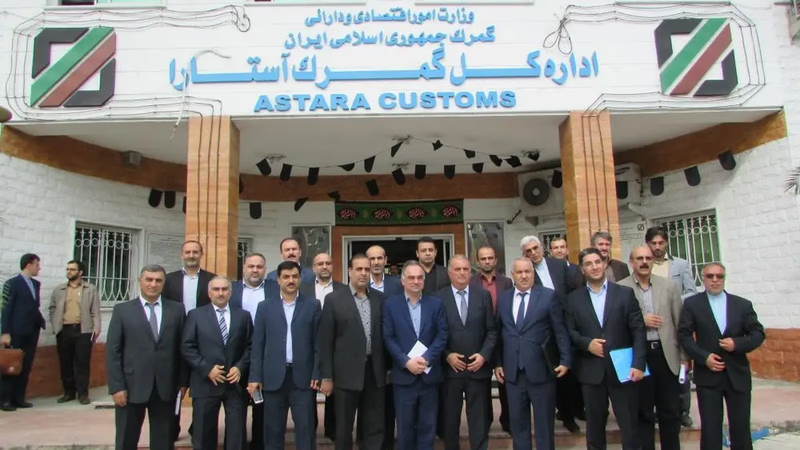
IRICA enhances Middle East trade through efficient customs processes.
The primary role of IRICA is to regulate and control the flow of goods in and out of the country. The customs authority is responsible for enforcing customs laws and regulations, collecting customs duties and taxes, facilitating trade, and ensuring compliance with international trade agreements. IRICA manages customs procedures at entry and exit points, including airports, seaports, and land border crossings. It carries out inspections, assessments, and clearances of imported and exported goods, ensuring compliance with customs regulations, tariff classifications, and valuation rules.
The Customs of the Islamic Republic of Iran plays a pivotal and restrictive role in the country's entry and exit as the country's economic frontier. Import and transit of goods and collection of import duties, customs duties and related taxes, technical requirements, and trade facilitation. The Customs of the Islamic Republic of Iran, to perform its legal duties, determines the levels of executive units required without observing the rules and divisions of the country and Article 1 of the Civil Service Management Law, in proportion to the volume and type of activities.
The assigned missions are prepared by the Customs of the Islamic Republic of Iran and after the approval of the Minister of Economic Affairs and Finance, are approved by the Council of Ministers. The Customs of the Islamic Republic of Iran include the Central Headquarters of the Iranian Customs and the Customs and Enforcement Customs. It is as follows:
- Applying government policies in the field of export and import and transit of goods
- Recognition and collection of import duties and other legally receivable funds by the Iranian Customs
- Carrying out legal formalities for clearance and delivery of goods to the owner or representative
Importers and exporters are required to submit customs declarations to IRICA, providing details about the goods, their value, origin, and other relevant information. These declarations are used to assess customs duties, verify compliance, and track trade statistics. IRICA conducts inspections and surveillance to prevent smuggling, counter illicit trade activities, and enforce customs regulations. It collaborates with other law enforcement agencies to combat smuggling, intellectual property violations, and other customs-related offenses.
His legality and review of clearance documents in order to verify the conditions of clearance and receipt of deductions received or refund of excess receipts - control and supervision of the passage of goods through the territory of the country Customs regulations on exemptions and prohibitions in the sector Definitive exports, temporary exports, definitive imports, temporary imports, cabotage, internal transit of goods, transfers, border clearing transactions, free shops, political packages and couriers, and international mail. And customs smuggling, abandoned and confiscated goods
- Predicting and providing the necessary infrastructure for the implementation and deployment of new systems, procedures, and methods, such as a single-window in customs activities.
- Collecting, analyzing, and publishing import and export statistics.
- Examining and identifying obstacles within the customs system and planning measures to eliminate them.
- Inspecting the actions and behavior of customs personnel, identifying any violations or administrative faults, inspecting customs executive units, supervising their performance, and organizing the quantity and quality of entry and exit points.
- Ensuring that goods owners adhere to relevant laws and regulations.
- Expanding international relations by entering into bilateral and multilateral customs agreements and memberships, actively engaging with international and customs organizations in accordance with the seventy-seventh principle (1) of the Constitution and related laws.
- Observing the recommendations of the World Customs Organization and complying with contracts and agreements exchanged within the framework of relevant laws and regulations.
- Utilizing advanced tools to enhance efficiency and improve customs procedures.
- Establishing necessary arrangements to facilitate trade, promote exports, and streamline the movement of goods.
- Streamlining customs processes to support tourism development.
- Fulfilling other customs duties as stipulated in this law and related regulations.
IRICA is actively engaged in trade facilitation initiatives to simplify and streamline customs procedures. It promotes the use of advanced technologies, such as automated customs systems and electronic data interchange, to enhance efficiency, reduce clearance times, and improve transparency. IRICA participates in international customs forums and organizations, such as the World Customs Organization (WCO), to exchange information, adopt best practices, and align customs procedures with global standards. It also engages in bilateral and multilateral customs agreements to promote trade facilitation and cooperation.
IRICA administers customs tariffs, which are the duties imposed on imported goods. The customs authority determines tariff rates and trade policies in accordance with national laws and international agreements. It also implements measures such as import/export restrictions and quotas as necessary. IRICA assesses the value of imported goods for the purpose of determining customs duties and taxes. It follows international customs valuation methods, such as the World Trade Organization (WTO) Valuation Agreement, to ensure fair and transparent valuation practices.
-
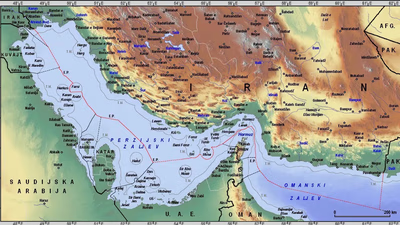
Iran"s transportation infrastructure is vital for trade, featuring an extensive road network, railways, and air routes. Major highways connect key regions, facilitating the movement of goods and passengers. The North-South and East-West Transport Corridors are crucial for linking the Caspian Sea to the Persian Gulf and connecting borders with Turkey and Afghanistan. Iran"s railway system spans over 13,000 kilometers, providing essential links to neighboring countries and supporting both passenger and freight transport. The country boasts several international airports, with Imam Khomeini International Airport serving as the main gateway for global travel. Maritime trade is supported by major ports like Bandar Abbas and Chabahar, which handle significant import-export activities. Additionally, Iran"s oil and gas pipeline network plays a critical role in transporting energy resources domestically and for export purposes. Companies like Beocontrol offer comprehensive transport solutions, ensuring efficient logistics from door-to-door or port-to-port. This robust transportation framework enhances Iran"s position as a key player in regional trade within West Asia.
-
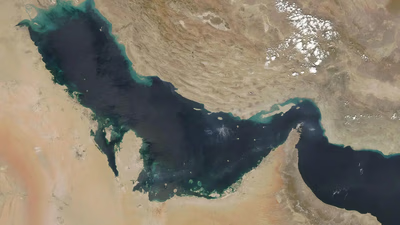
Iran, officially the Islamic Republic of Iran, is located in West Asia and is the second-largest country in the Middle East. It shares borders with several countries, including Armenia, Azerbaijan, Turkmenistan, Afghanistan, Pakistan, Iraq, and Turkey. With a rich history of over 2,500 years, Iran was once the heart of the Persian Empire and has been influenced by various dynasties. The country boasts a diverse culture shaped by Islamic traditions and regional customs. Persian literature and cuisine are notable aspects of its heritage. Iran"s strategic location near the Persian Gulf and the Strait of Hormuz makes it crucial for global oil transportation. The population exceeds 83. 5 million, with Tehran as its capital.
Governed as an Islamic republic with a mixed political system led by a Supreme Leader and an elected President, Iran also has a parliamentary body known as the Majlis. The nation is rich in natural resources, particularly oil and gas reserves, ranking third among OPEC members. Despite its economic potential, Iran faces challenges from international sanctions and internal corruption. The country is also known for its cultural landmarks like Persepolis and Isfahan"s Naqsh-e Jahan Square. While Iran"s nuclear program has drawn international scrutiny over concerns about weapon development, it maintains that its activities are peaceful. "
-
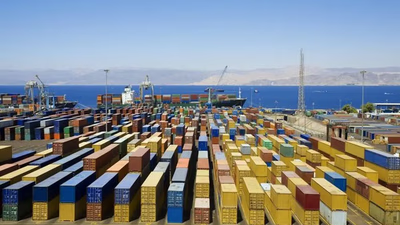
Iran"s export landscape is dominated by oil and gas, with significant contributions from petrochemicals, metals, and agricultural products. The country is a major player in the global oil market, exporting crude oil and refined products that form a substantial part of its revenue. Additionally, Iran"s well-established petrochemical industry produces a variety of goods such as polymers and fertilizers for international markets. Beyond hydrocarbons, Iran exports metals like iron ore and copper, alongside agricultural products including fruits and nuts. Despite being an oil-rich nation, Iran also imports energy products to satisfy domestic needs. Recent statistics from Bazargan Customs indicate a decline in both exports and imports due to global economic challenges exacerbated by the COVID-19 pandemic. In the first seven months of the year, exports from Bazargan reached over $2 billion but saw significant decreases in both weight and value compared to previous years. The customs director highlighted that machinery, electrical equipment, and consumer goods are among the key imports necessary for supporting local industries. Overall, while Iran has a diverse export portfolio, it faces challenges in maintaining trade volumes amidst fluctuating global conditions.
-

IRICA, the customs authority of Iran, plays a crucial role in regulating trade by managing the flow of goods across borders. It enforces customs laws, collects duties and taxes, and ensures compliance with international agreements. The organization oversees customs procedures at various entry and exit points, conducting inspections and assessments to verify compliance with regulations. Importers and exporters must submit detailed customs declarations to facilitate the assessment of duties and track trade statistics. IRICA collaborates with law enforcement to combat smuggling and other illicit activities while also working on improving customs efficiency through advanced technologies like automated systems. The authority is involved in international relations, engaging in bilateral and multilateral agreements to enhance trade facilitation. Additionally, IRICA administers tariffs based on national laws and international standards, ensuring fair valuation practices for imported goods. By streamlining processes and promoting transparency, IRICA aims to support economic growth through effective trade management.
-
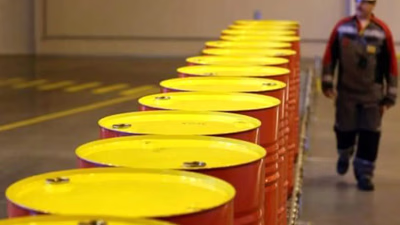
Iran"s economy is significantly bolstered by its rich mineral resources and diverse agricultural sector. The country holds substantial reserves of oil, natural gas, coal, iron ore, copper, lead, and zinc. Mining activities provide essential raw materials for various industries; for instance, iron ore is crucial for steel production while copper is used in electrical components. Iran ranks as the world"s fourth-largest oil producer and possesses the largest gas reserves globally. Key mining regions include Masjed Soleiman and Gachsaran. Additionally, Iran"s agricultural output includes wheat, rice, barley, fruits, and medicinal plants that support food processing and textile industries. The industrial landscape encompasses sectors such as petrochemicals, automotive manufacturing, textiles, and food processing. These industries rely on both mined resources and agricultural products to create value-added goods.
For example, iron ore is transformed into steel for construction projects while wheat is processed into flour for baking. Overall, Iran"s mining and agricultural sectors are integral to its economic framework.





